2026 Author: Priscilla Miln | miln@babymagazinclub.com. Last modified: 2025-01-22 17:55:13
Pre-school education is the right of every child, which is implemented by the relevant preparatory institutions, but can be carried out by parents independently at home.
As statistics show, in Russia, about a third of families do not have the opportunity to raise a child in state preparatory organizations. Therefore, preschool education in our country is one of the priorities of youth policy.
The history of the formation of the system of preschool education in Russia

Following the European states at the end of the 19th century, preparatory educational institutions began to appear in the domestic expanses. The first free kindergarten in our country was organized in 1866 in the city of St. Petersburg. At the same time, private preparatory institutions for the children of the intelligentsia began to spring up.
In the first half of the 20th century, the educational program of preschool education in Russia was already quite developed. Public access was opened to a whole mass of paid and free preparatory organizations. Several kindergartens were constantly operating in the country, the organizationwhich was close to the modern level.
Preschool education in Soviet times
The first program, according to which all state kindergartens were supposed to work, was adopted in 1934, and already starting from 1938, the main tasks of such institutions were defined, the structure of institutions was formed, the postulates of the functioning of kindergartens were documented, methodological instructions were introduced for teachers.
In the 40s of the last century, preschool education reached an unprecedented scale at that time. More than two million children across the country have accessed free training.
In 1959, absolutely new institutions of preschool education appeared in the form of nurseries. Here, parents could send their children aged 2 to 7 at their own request, thus shifting the task of education onto the shoulders of state teachers and freeing up free time for work.
Comprehensive reform of the education system, which was carried out in our country in the period from the late 80s to the mid-90s of the last century, led to the formation of the "Concept of Preschool Education". The document contained several fundamental principles that teachers had to follow in the process of raising babies:
- Humanization is the development of diligence, respect for the rights of other people, love for the family and the world around.
- Personal development - strengthening the physical and mental he alth of the child, helping to comprehend the basics of mental and labor activity.
- Individual and differentialupbringing - the development of a child's inclinations, teaching kids based on their personal interests, capabilities and abilities.
- De-ideologization - the disclosure of universal values, the rejection of a specific ideology in the course of the implementation of general education programs.
Public institutions

Budget recognized non-profit organizations created by decree of the authorities, local authorities to provide services to the population in the field of preschool education. The property of such institutions rightfully belongs to the state, but is entrusted to the disposal of the leadership of the educational institution.
Funded public kindergartens at the expense of the budget in the form of subsidies. Such organizations are not prohibited from conducting entrepreneurial activities if the receipt of income is aimed at achieving the goals for which the institution was created.
Autonomous Institutions

The system of preschool education suggests the possibility of organizing autonomous institutions. This category includes institutions established by the constituent entities of the Russian Federation to provide services in the field of education.
Funding of autonomous kindergartens is carried out at the expense of the founder's personal funds, through subventions or subsidies. Services to the population here can be provided both on a paid and free basis. The property of autonomous institutions is assigned to the leadership and is entrusted to independent disposal.
Tasksmodern preschool educational institutions
Currently, the following tasks for the functioning of preschool education organizations are distinguished:
- strengthening the mental and physical he alth of babies, protecting the lives of pupils;
- ensuring social and personal growth, development of speech abilities, satisfaction of aesthetic needs;
- raising kids based on age characteristics, developing love for the world around them, respect for the freedoms and rights of other people;
- interaction with parents, providing methodological and advisory assistance to young families.
Preschool teacher

The main task of the teacher is the development of the original individual personality of the child, the disclosure of the foundations of the perception of the world around, the formation of values in relation to nature, society.
A teacher in the preschool education system should have the following qualities:
- developed thinking, long-term and working memory;
- high emotional stability, objectivity of assessments, tact and morality;
- empathy for the environment, demanding;
- creativity;
- the ability to quickly switch attention;
- kindness, tolerance, justice, initiative.
Types of modern preschools

Given the need to work with certain age groups and the specific focus of educationindividual kids, the following types of preschool educational institutions are distinguished:
- Traditional Kindergarten - implements generally accepted programs for the preparation and education of children.
- Kindergarten for young children - prepares pupils aged 2 months to 3 years. Responsible for creating optimal conditions that promote early socialization and adaptation of babies to the outside world.
- Kindergarten for children of older, preschool age - implements the main educational program, and also educates kids aged 5-7 years in special groups, which provide equal opportunities for subsequent successful schooling.
- Kindergartens for he alth improvement and care - not only a pre-school program is being implemented here, but also preventive, he alth-improving and sanitary-hygienic work is being carried out.
- Compensatory institutions - the main emphasis is on the qualified correction of mental and physical disabilities of pupils.
- Kindergarten with a priority on a specific type of activity - in addition to general education, teachers meet the cognitive, personal, social, aesthetic and artistic needs of kids.
In closing

Despite the rather developed system of preschool educational institutions, the improvement of teaching staff, the formation of the personal qualities of educators based on considerations ofhumanistic psychology.
Full-scale disclosure of pedagogical potential, increasing the competence of educators, self-education, modernization and development of the system of children's preparatory institutions - all this is among the most pressing problems in the field of preschool education.
Recommended:
Gender education in preschool educational institutions according to GEF: consultation for parents and teachers
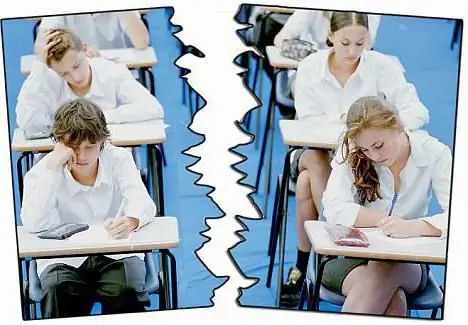
Gender education in the preschool educational institution occupies a huge place in the development of a preschooler. That is why so much attention is paid to it in the curriculum. Gender education in the preschool educational institution according to the Federal State Educational Standard should be present in every kindergarten
What is GEF preschool education? Educational programs for preschool educational institutions
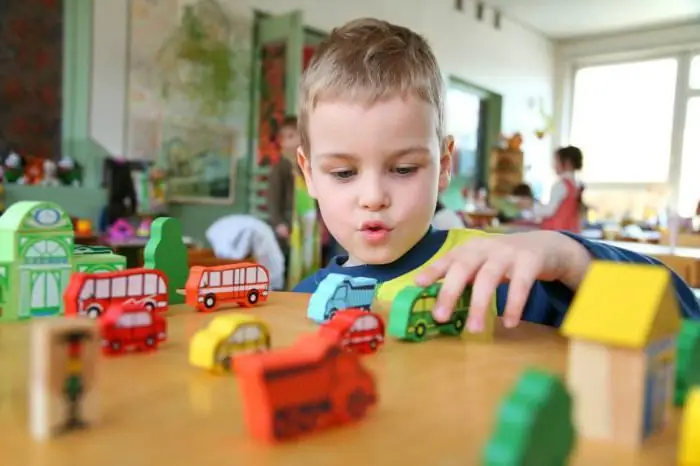
Today's children are indeed significantly different from the previous generation - and these are not just words. Innovative technologies have radically changed the way our children live, their priorities, opportunities and goals
Command system. Feedback on the Command fastening system. Command 3M mounting system: instructions
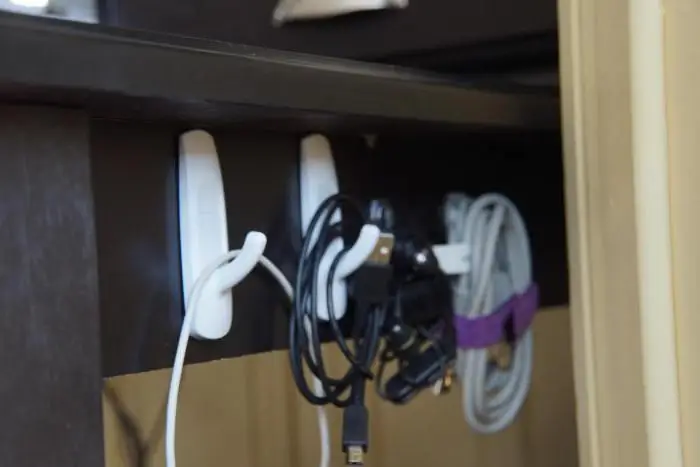
Command system - a unique technology for fixing objects (using hooks, fasteners, organizers and tapes) on flat surfaces used in residential and office spaces
Physical education: goals, objectives, methods and principles. Principles of physical education of preschool children: characteristics of each principle. Principles of the system o
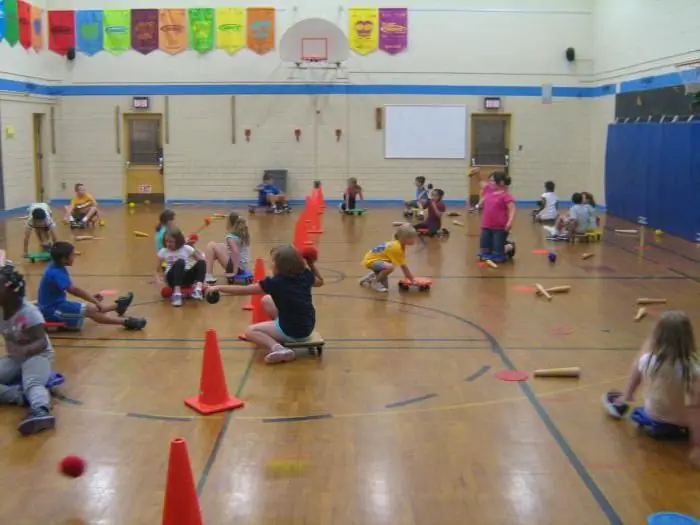
In modern education, one of the main areas of education is physical education from an early age. Now, when children spend almost all their free time on computers and phones, this aspect becomes especially relevant
Innovative technologies in preschool educational institutions. Modern educational technologies in preschool educational institutions
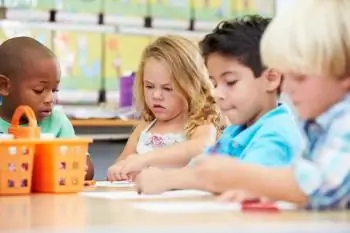
Today, teams of teachers working in preschool educational institutions (DOE) direct all their efforts to introduce various innovative technologies into their work. What is the reason for this, we learn from this article

